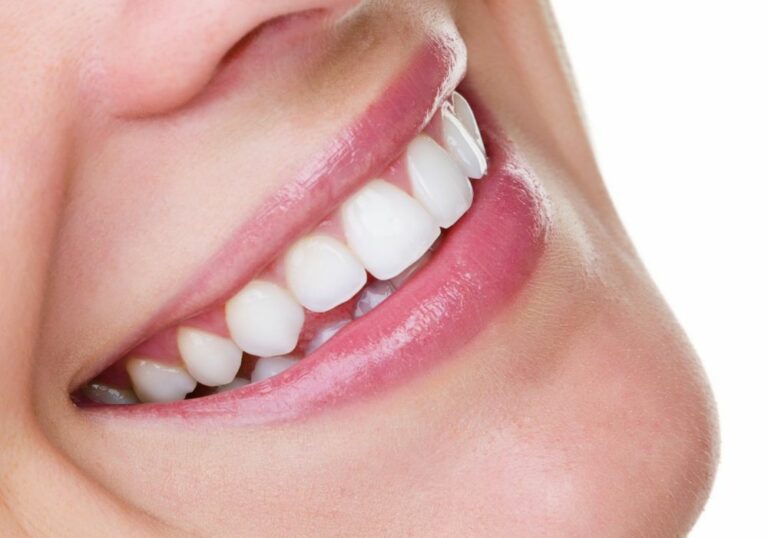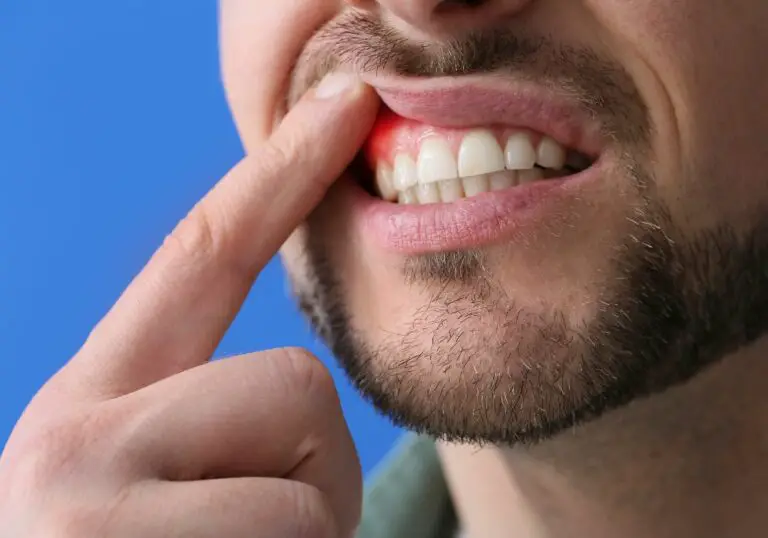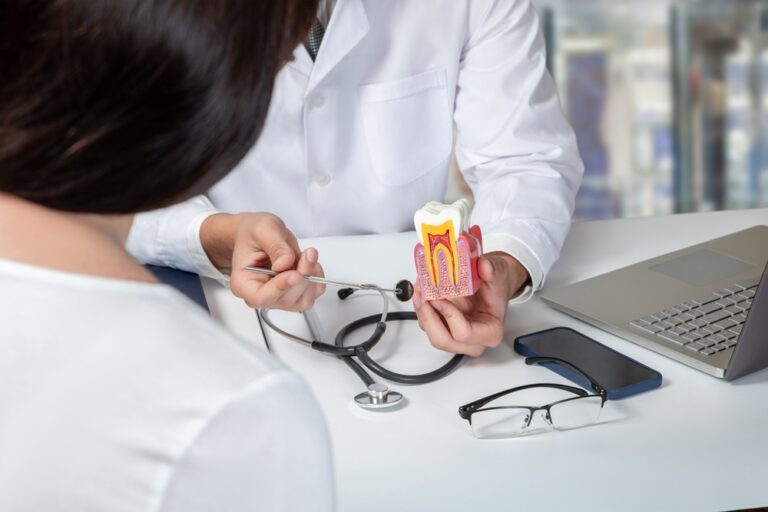Tooth sensitivity or pain while sleeping is a common complaint that can disrupt rest and cause major discomfort. The pain ranges from mild to severe throbbing that makes it impossible to sleep. There are a number of potential causes for nighttime tooth pain including dental problems like cavities, cracked teeth, and gum disease. But other issues like sinus infections and improper sleeping position can also contribute to toothaches at night.
Understanding what’s causing the pain is the first step toward treating it effectively. This article explores the various reasons for toothaches during sleep, when to see a dentist, home remedies for relief, and tips to help prevent nighttime dental pain.
Common Causes of Tooth Pain at Night

1. Teeth Grinding and Clenching (Bruxism)
One of the most prevalent causes of tooth pain while sleeping is bruxism or excessive grinding and clenching of the teeth. This typically happens during REM sleep when muscles relax. People with bruxism rub their upper and lower teeth forcefully against each other which puts enormous pressure on the jaws, teeth, and muscles.
Bruxism may be triggered by factors like:
- Stress, anxiety, and hyperarousal
- Sleep disorders such as sleep apnea
- Genetics and personality type – driven perfectionists are more prone to bruxism
- Aggressive personality and coping style
- Misaligned bite, crooked teeth, or jaw joint issues
The constant grinding forces can lead to symptoms including:
- Tooth sensitivity and aching pain, especially upon waking
- Headaches and sore, stiff jaw muscles
- Chipped, cracked, and loose teeth
- Worn enamel and exposed dentin
- Damage to dental work like fillings and crowns
Treating teeth grinding involves identifying and managing triggers like stress. Custom mouth guards worn at night cushion teeth from grinding forces and prevent damage. Botox injections can relax muscles. Pain medication taken before bedtime may relieve discomfort so sleep is possible.
2. Dental Cavities
Dental caries or cavities are areas of decay that form in the hard outer enamel layer of teeth. They develop when acid-producing plaque bacteria feed on sugary foods left in the mouth. As the decay gets more severe and extends into the inner dentin layer, hot or cold foods and liquids can trigger sharp pain by exposing sensitive nerve endings.
Decay progresses faster with poor oral hygiene, inadequate fluoride, and frequent consumption of sugary and acidic foods. Nighttime pain from cavities may signal progression toward the innermost pulp requiring immediate dental work. Cavities require fillings to remove decay and restore the tooth structure.
3. Dental Abscess
A dental abscess is a severe infection in the teeth, gums, or jawbone identified by throbbing pain, swelling, and pus. Abscesses form when bacteria invade the pulp of the tooth, often after tooth decay has gone untreated. The infection spreads from the root tip down into surrounding bone creating a pocket of pus.
Abscess pain is usually severe, gets worse when lying down, and may radiate through the jaw. Other symptoms include fever, foul breath, swollen lymph nodes, and rubbly or loose teeth. Prompt antibiotic treatment and drainage of infection is required via root canal treatment or tooth extraction.
4. Pericoronitis
This condition causes inflammation and infection around the gums overlying a partially impacted wisdom tooth. As the tooth attempts to break through the gums, the flap of tissue over it becomes an ideal breeding ground for bacteria. Infection and swelling can cause severe pain that grows worse at night when reclining. Pericoronitis requires medical attention as soon as possible before it spreads.
5. Gum Disease
Advanced gum disease is a bacterial infection causing gums to pull away from teeth, forming deep pockets that become infected. The inflamed detached gums are less able to insulate teeth and absorb biting forces. Nighttime air exposure and pressure on sensitive root surfaces then leads to tooth discomfort. Treating gum disease with deep cleanings and antibiotics can help reduce this form of tooth pain.
6. Sinusitis
Inflammation or infection of the sinus cavities surrounding the upper teeth can also put pressure on the upper jaw that feels like tooth pain. Sinusitis tooth pain is generally worse when bending over and may occur along with sinus headache, congestion, and facial swelling. Treatment with antibiotics, nasal steroids, decongestants, and sinus rinses can relieve related toothaches.
7. Tooth Fracture
Cracked, chipped, or fractured teeth commonly cause tooth pain when chewing as compression releases fluid between the fracture. But at night, the seepage of fluid in and out of the crack intensifies with temperature changes from breathing. The only solution is to repair cracks immediately with dental fillings, crowns, or extraction for splits extending below gum line.
Other Potential Sources of Night Tooth Pain
Some other possible reasons for toothaches and sensitivity while sleeping include:
- Recent dental treatments like fillings, root canals, crowns, braces – post-procedure inflammation can cause temporary discomfort
- Teeth whitening treatments – increased nerve sensitivity is common for a few days after bleaching
- Ill-fitting dentures – improper bite and rubbing on gums causes irritation and pain
- Certain cancer treatments – radiation/chemo can cause dental pain and dry mouth
- Pregnancy – hormonal fluctuations intensify tooth sensitivity
- Sleeping face down on arm – pressure on teeth all night aggravates pain
- Dry mouth – lack of protective saliva increases pain
Warning Signs that Require Urgent Dental Care

Severe or persistent nighttime toothaches need prompt assessment by a dentist to determine the cause and appropriate remedy. Contact your dentist right away if you have:
- Excruciating and throbbing tooth pain making sleep impossible
- Tooth that is extremely sensitive to hot or cold
- Gum swelling, jaw stiffness, or facial swelling
- Fever and chills signaling a spreading infection
- Recent injury causing tooth to crack, chip or become displaced
Putting off dental care can allow preventable issues to escalate into emergencies. Get same day or emergency dentist treatment for any worrying symptoms associated with night toothaches. Quick action is key to stopping infections, repairing damages, and saving teeth.
At-Home Remedies to Temporarily Relieve Night Tooth Pain
While waiting to obtain dental treatment for nighttime toothaches, you may get some temporary relief from these home remedies:
- Taking over-the-counter pain relievers like acetaminophen (Tylenol), ibuprofen (Advil, Motrin), or aspirin
- Orally rinsing with whiskey, brandy, clove oil, benzocaine gel or other numbing agent
- Using cold compresses with ice or cold tea bags against the cheek by the painful tooth
- Drinking chilled beverages to constrict blood vessels and numb pain signals
- Chewing on fresh ginger root, garlic clove, or black peppercorn to increase blood flow
- Applying diluted peppermint oil or vanilla extract to the gums above the painful tooth
These home remedies only reduce symptoms temporarily and are not a substitute for professional dental care. Seek treatment promptly from your dentist to resolve the underlying cause and restore dental health.
Tips to Prevent Nighttime Toothaches

You can help minimize tooth sensitivity and pain while sleeping by:
- Brushing twice daily for 2 minutes and flossing thoroughly before bed to remove bacteria
- Getting cavities filled early before reaching the dentin and pulp layers
- Using fluoridated toothpaste and mouthwash to strengthen enamel
- Replacing toothbrush every 3 months or after illness for maximum cleaning
- Visiting your dentist regularly for exams and professional cleanings
- Managing health issues like reflux and eating disorders that increase dental erosion
- Sleeping on back or side to avoid putting pressure on teeth all night
- Hydrating with plain water to stimulate saliva production and neutralize acids
- Limiting intake of sugary and acidic foods and beverages that promote decay
- Using a night guard if you grind your teeth or have misaligned bite
- Stopping tobacco use and excessive alcohol intake
Developing good oral hygiene habits and getting routine dental care can help reduce the risk of nighttime toothaches. But see your dentist promptly if you experience any unusual dental pain, swelling or symptoms. Quick treatment is key to preventing minor issues from becoming major dental problems.
Questions Patients Frequently Ask about Night Tooth Pain
Why do my teeth hurt at night but feel fine in the morning?
Nighttime position changes and lower saliva production contribute to tooth pain at night that improves by morning. Lying down increases blood flow and pressure on teeth. Breathing through the open mouth can expose sensitive dentin. Lower saliva makes teeth feel more pain. These factors reverse upon getting up and moving around. Morning symptoms provide clues to the cause.
What can I do for relief until I can see the dentist?
To help relieve severe toothaches at night until your dental appointment, rinse with warm saltwater. Take over-the-counter pain medication before bedtime as needed. Apply ice packs or cold compresses to the outside of the cheek near the painful tooth to reduce inflammation. Avoid hard, hot, or cold foods that aggravate symptoms. Get prompt dental treatment to resolve the underlying problem.
How can I sleep when my tooth pain is so bad?
Try elevating your head with pillows to reduce throbbing. Use pain medication and ice packs. Drink chilled water. Try relaxation techniques and deep breathing exercises to help you sleep. Avoid sleeping on the side with the painful tooth. Get earplugs if grinding your teeth at night. See your dentist soon for diagnosis and relief so you can sleep again.
Could the pain be from something other than a dental issue?
Sometimes sinuses or jaw joints mimic tooth pain. Sinusitis causes upper toothache that worsens with head position changes. TMJ joint disorders feel like a dull ache near the ears. Migraines also may present with tooth sensitivity. Let your dentist determine whether the pain stems from a dental or other source. Proper treatment depends on accurate diagnosis.
How soon should I see the dentist for nighttime tooth pain?
You should see a dentist right away if you have any of these severe symptoms: throbbing pain keeping you awake, swelling around gums or face, high fever, cracked or injured tooth, or tooth that is very painful to hot/cold. Dental infections and injuries need urgent treatment to avoid complications. Make an appointment immediately if night symptoms signal a developing problem. Don’t delay getting examined.
Conclusion
Tooth sensitivity and pain that only occurs at night can indicate issues like tooth decay, gum disease, sinus problems and dental injuries. Seeing a dentist promptly for evaluation and treatment is crucial to stopping infection, repairing damage and saving teeth. Left untreated, many dental conditions will continue to worsen causing oral health to deteriorate. Implementing healthy dental habits and getting regular professional cleanings can help reduce the risks of painful nighttime dental emergencies. But if you do experience any concerning symptoms, seek help right away for proper diagnosis and care.







